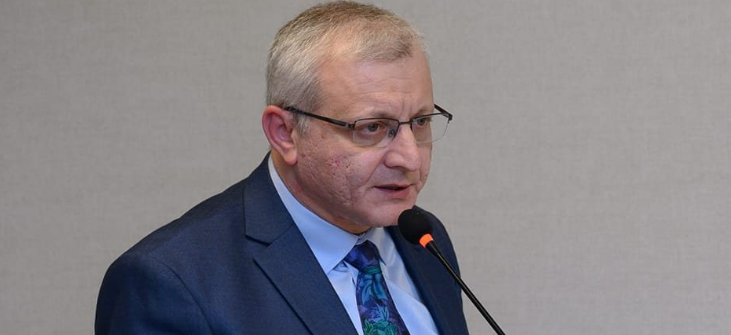Baku, August 19, 2025
Russia’s surprising response to the so-called “Trump Route” project — a transport corridor expected to run through Armenia’s Zangezur region — reveals more than diplomatic flexibility. It may expose a new layer of geopolitical calculation, and perhaps even an unspoken understanding with Washington.
Instead of rejecting the idea outright, Russian Deputy Prime Minister Alexei Overchuk said Moscow could support the project if it benefits Armenia. For Armenian political analyst Suren Surenyants, this was no accident: “Everyone expected a harsh refusal. Instead, Moscow signaled that it was willing to consider the corridor. That is a major shift.”
Why Russia Is Holding Back
Surenyants argues that the Kremlin’s restraint stems from three key factors:
Ukraine War Fatigue — Already bogged down in Ukraine, Russia cannot afford to open another confrontation with the United States.
Calculated Skepticism — Moscow doubts the Trump Route will ever be built and sees no value in wasting political capital on loud opposition.
Backroom Understandings — A possibility remains that Washington and Moscow have already reached some tacit deal regarding the corridor.
The Strategic Risks
If the project advances, it could redraw power balances in the South Caucasus. Surenyants warns of several dangers for Moscow:
Western influence expanding deeper into the region,
Armenia drifting further away from Russia’s orbit,
Turkey and Azerbaijan gaining stronger positions.
For a Kremlin still clinging to its “sphere of influence” doctrine, each of these outcomes would mark a direct erosion of its authority.
But Also Potential Gains
And yet, Surenyants notes, Moscow may not be entirely sidelined. The corridor could still offer Russia economic leverage, participation in cross-border trade, or at the very least the opportunity to frame itself as a peace broker.
In his words: “If the project collapses, Russia loses nothing. If it succeeds, Moscow can insert itself into the economic components or use it as a bargaining chip.”
A Geopolitical Gamble
What emerges is a picture of a Kremlin that is neither embracing nor rejecting the Trump Route, but hedging — playing for time, avoiding unnecessary confrontation, and keeping its options open. For now, Moscow is gambling that flexibility will buy influence in the long run.
Whether this proves shrewd diplomacy or strategic complacency will depend on whether Washington, Ankara, and Baku can transform the Trump Route from an idea into reality.


